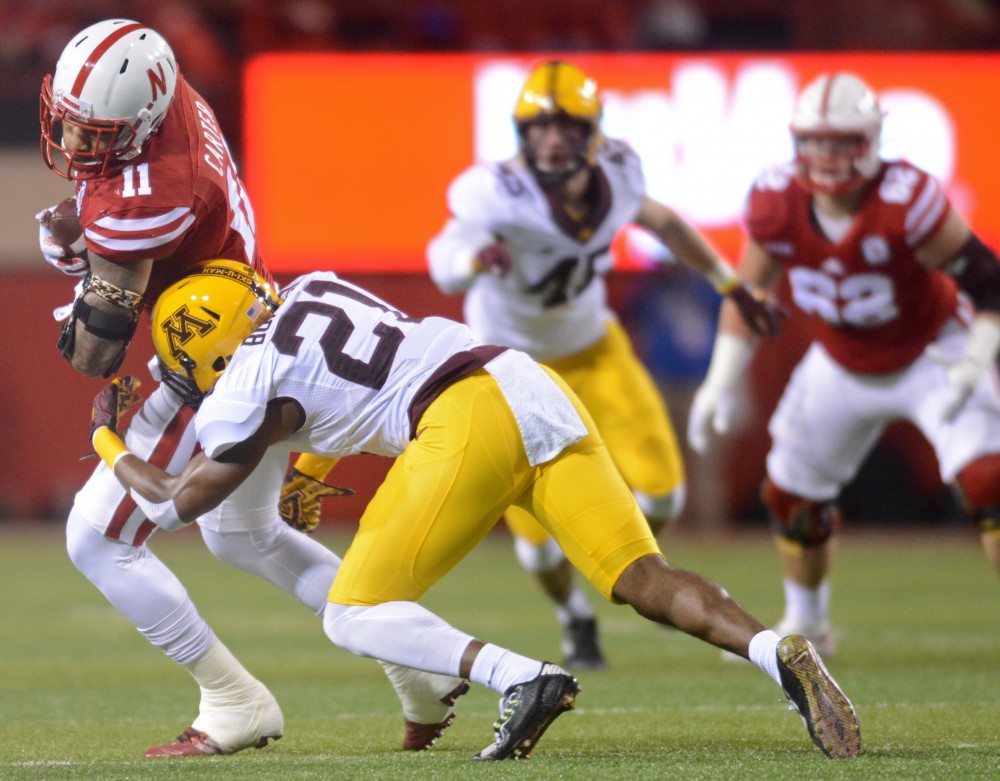A three-person University of Minnesota panel issued sanctions against six of the ten Gophers football players accused of a Sept. 2 sexual misconduct Friday, bookending a months-long scandal that has blighted the University’s football program and has left many disquieted over the team’s culture.
The panel decided to expel Ray Buford, Kiante Hardin, Dior Johnson and Tamarion Johnson from the University, a source close to the situation told the Minnesota Daily Friday. Mark Williams and Carlton Djam received one-year suspensions.
In addition, four players — Kobe McCrary, Antoine Winfield, Jr., Seth Green and Antonio Shenault — were cleared of wrongdoing.
The athletics department suspended the players from football activities in December after the University Office for Equal Opportunities and Affirmative Action completed its investigation into the alleged sexual misconduct.
In the shocking 84-page report, the victim-survivor accused some of the players of taking turns sexually assaulting her while others watched. The report concluded that the players had “more likely than not” violated the school’s conduct code. In all, five of the EOAA’s original recommended punishments were upheld by the University panel, one was reduced and four were dismissed — sanctions ranged from expulsion, suspension and probation.
While the Hennepin County Attorney’s Office declined to pursue charges in the case, following a Minneapolis Police Department investigation, the University’s decision is a step in the path toward justice for the victim-survivor, and others who have experienced sexual assault on campus.
The EOAA’s report and the panel’s decision also come at a precarious time for the future of federal policies aimed at curtailing sexual assault. President Donald Trump’s nominee for secretary of education, Betsy DeVos, last month refused to state whether she would uphold the Obama administration’s interpretation of Title IX whose reading sought to use the federal law to combat rampant sexual assault on college campuses.
We need stringent guidelines — and “more likely than not” standards of evidence — for colleges to aggressively pursue sexual assault accusations, and discipline students accused of sexual misconduct. In these cases, students, no matter what their rank-and-file, no matter if they are an athlete or not, must be held accountable.
While it seems likely that the accused parties will appeal the panel’s decision — Lee Hutton, one of the players’ attorneys told the Minnesota Daily they would take the case to federal court if necessary — we hope the University will hold strong on their decisions. Institutions of higher education cannot be complacent or complicit in the epidemic of campus sexual assault.








